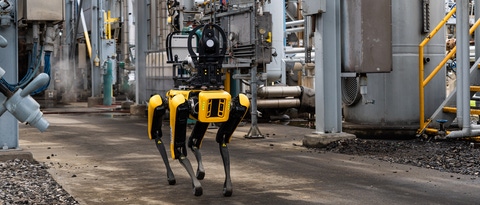Factbook
Sustainability
We bring our corporate purpose – We create chemistry for a sustainable future – to life by systematically integrating sustainability into our strategy, our business and our assessment, steering and compensation systems. We want to secure our long-term success with products, solutions and technologies that create value added for our customers, the environment and society.
Our sustainability strategy
Our ambition is to be the preferred chemical company for enabling our customers’ green transformation. To support this ambition, we supply our customers with products that contribute to sustainability, either through their use by the customer or through their reduced carbon footprint. Many of our customers have set their own sustainability-related targets and are in the process of adapting their business models to reduce their emissions. They are doing so at various speeds and with varying priorities. Our customers also differ in terms of their willingness to pay higher prices for more sustainable products.
Against this backdrop, we have adjusted our transformation approach: We want to prioritize projects where we already see rising demand among customers and a willingness to pay for more sustainable products. We are also focusing on selected transformation projects that impact our license to operate. We have increasingly invested in renewable energies to operate our plants. Our next step will be to focus on using more bio-based and recycled feedstocks in our existing plants. This will enable us to develop an increasing number of products with a reduced carbon footprint for our customers. As the markets for more sustainable solutions continue to grow, we intend to scale up and apply new technologies that we are currently piloting.
Our organizational and management structures
Together with specialists from operating divisions and service units, the Corporate Center is responsible for integrating sustainability into decision-making processes and for steering and reporting processes regarding sustainability topics. The Corporate Strategy & Sustainability unit is also responsible for the global steering of climate-related matters. Group-wide risk and opportunity management is the responsibility of the Corporate Center unit Corporate Finance, which reports to the Chief Financial Officer. The Corporate Strategy & Sustainability unit reports to the Chairman of the Board of Executive Directors.
Sustainability topics are discussed regularly and managed collectively by the Board of Executive Directors. When making its decisions, the Board of Executive Directors considers the results and recommendations from sustainability evaluations of business processes. It makes decisions with strategic relevance for the Group and monitors the implementation of strategic plans and their target achievement. The Supervisory Board is regularly briefed on the development of individual sustainability topics, on sustainability targets and the status of target achievement, by the Board of Executive Directors.
Sustainable steering of our product portfolio
The development of our product portfolio toward more sustainability is a critical lever in assisting our customers with their green transformation. We particularly rely on our TripleS method (Sustainable Solution Steering), which we use to categorize our product portfolio into five segments on the basis of sustainability-related aspects: Pioneer, Contributor, Standard, Monitored and Challenged (see graphic). We have also integrated TripleS into the assessment of our research and development processes so as to incorporate the requirements formulated by the European Commission in its Safe and Sustainable by Design framework.
Share of sales revenue generated by each TripleS segment in the 2024 business year

Taken together, the Pioneer and Contributor products make up our Sustainable-Future Solutions. Products allocated to these segments make a positive sustainability contribution in the value chain. By 2030, more than 50% of BASF’s sales in the scope of TripleS are to be attributable to Sustainable-Future Solutions (2024: 46.3%). In 2024, we also introduced a new target for circular economy solutions, known as Loop Solutions. By 2030, we want to achieve €10 billion in sales with these solutions (2024: €5.7 billion).
If our portfolio assessment identifies products with sustainability concerns, we classify them either as Monitored, or in case of significant concerns, as Challenged. In the case of Challenged products, we develop action plans. These include research projects and reformulations to optimize products or replace them with alternatives. We are generally phasing out all Challenged products within five years of their initial classification.
For more information on TripleS, see basf.com/en/sustainable-solution-steering


